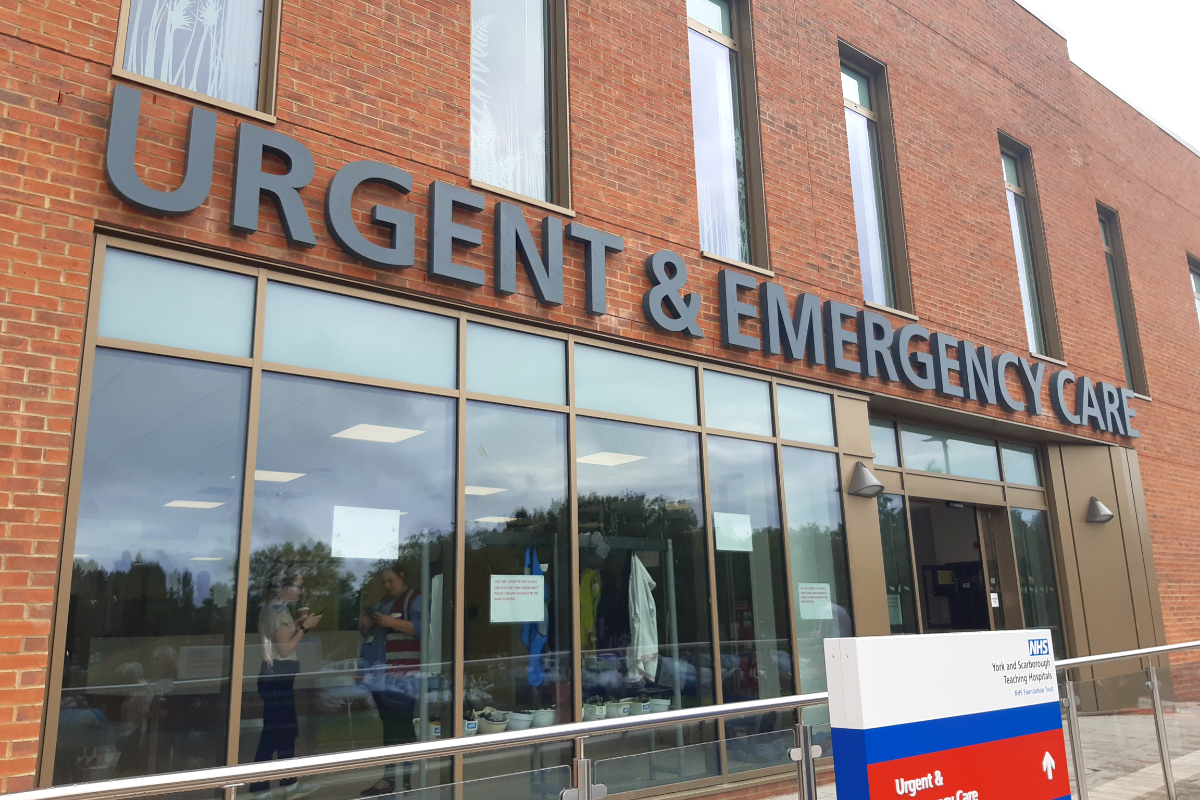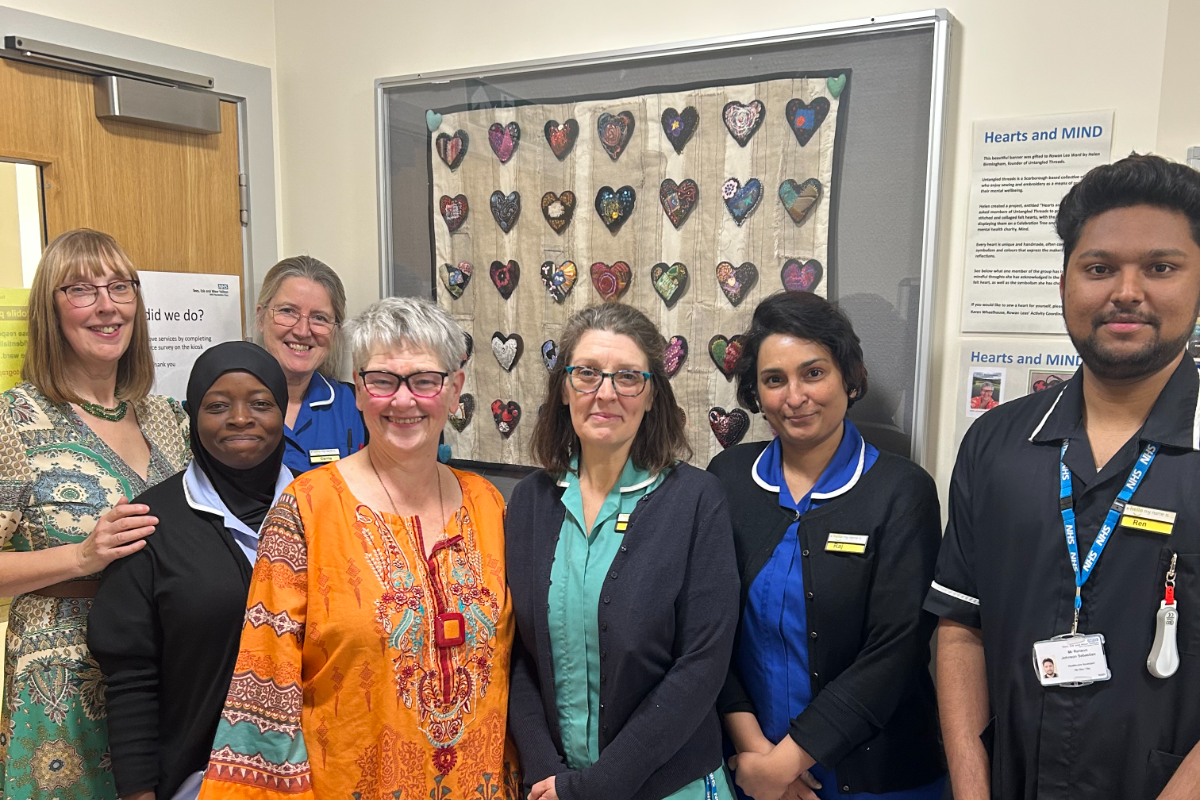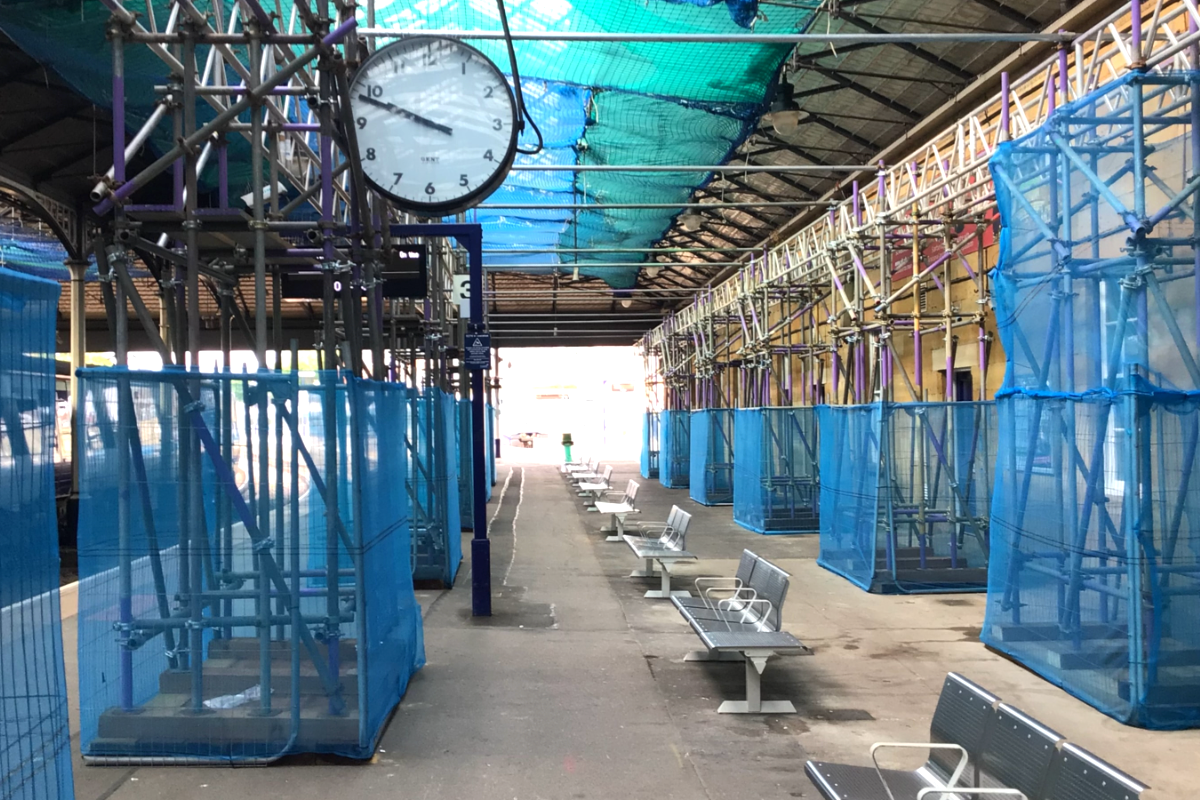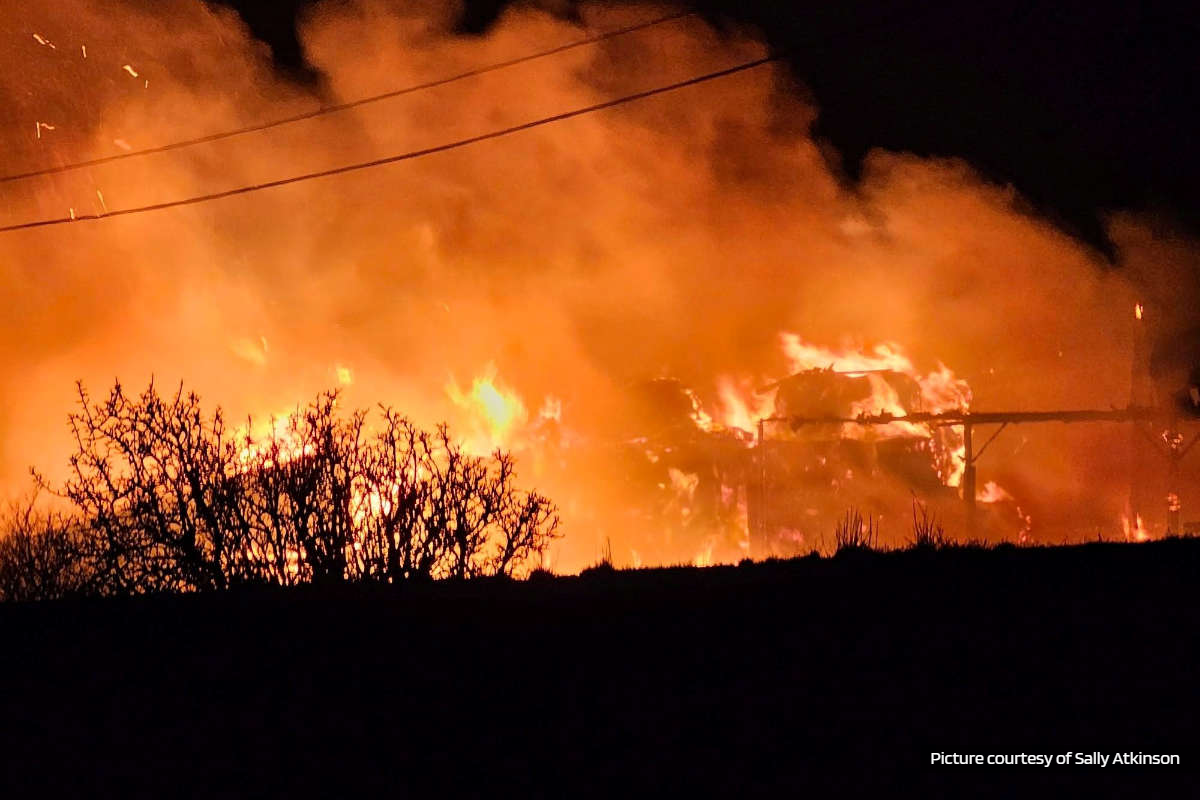
A new £1.2 million research project is set to investigate the challenges of providing urgent and emergency healthcare in rural and coastal areas, with a focus on the Yorkshire coast.
Scarborough Hospital, in collaboration with academics from the University of Birmingham and York, has been awarded national funding from the National Institute for Health and Care Research.
The research will establish how urgent and emergency care could be improved for patients living in rural coastal areas.
The study is being jointly led by Dr Arabella Scantlebury, University of Birmingham and Professor Joy Adamson, University of York. Other universities across the country and other health and care organisations are also involved. The Research and Innovation Department at York and Scarborough Teaching Hospitals NHS Foundation Trust will support on the project
Professor Adamson says they will be looking at existing urgent care provision and assessing how well that is performing.
Dr Scantlebury says that the pressures being felt across England in emergency care are felt more acutely in coastal areas.
The 30-month project will consist of three main components:
- Mapping current urgent and emergency services in rural and coastal areas across England to identify existing services and any innovations specific to these regions.
- Statistical analysis of routine NHS data sets to assess the performance of these services, including their impact on patient health and patient experiences, as well as things like waiting times in emergency departments, hospital admission rates, and repeat service attendances.
- A more in-depth look at around 12 services in rural and coastal areas to understand how these services work in practice, including observations of staff and interviews with patients and other people on the periphery of the service like ambulance staff.
The Yorkshire coast will be a key area of focus in the study. The research will look at how different models of care can improve patient outcomes and help services cope with demand.
Joy Adamson says there are number of extra challenges that coastal healthcare providers are having to deal with.
She feels the whole Yorkshire Coast needs to be examined:
The project aims to highlight examples of positive local innovation and use this to inform national policy. Dr Scantlebury explains:
Arabella says that they will be working closely with local community groups as well as local healthcare providers:
Professor Adamson says the team will be working with NHS staff in the local emergency healthcare sector and with patients to get a fuller understanding of how the system is operating.
Community groups such as Age UK (North Yorkshire Coast and Moors) and SeeCHANGE have been involved in the project since the funding bid. According to the researchers, community input was
"absolutely instrumental in terms of making sure that community voice is embedded within our project and making sure that actually the way that we communicate our research is actually in a way that is going to be able to be received and and communicated back to them".
Rebecca Blakey, Community Engagement Officer for SeeCHANGE, said:
“It will improve the environment and equipment of the hospital to help staff give the patients the correct and efficient treatment whilst they are in their care.”
“The study will provide a better understanding of how emergency care is being transformed in rural coastal areas, by helping understand which models, or ways of working, help improve patient care and help emergency services cope with demand.”
The project team aims to continue to work with local communities throughout the study and is keen to hear from other community groups and organisations along the coast. They see themselves as a "conduit" between local communities and national policy.
By highlighting local innovations and solutions, the project aims to drive changes in national policy to improve healthcare delivery in these areas.
It's hoped that the findings of the study, expected in 2027, will inform national and international decision-makers about how best to provide urgent emergency care.




 Injured Yorkshire Coast Seal Back in the Water
Injured Yorkshire Coast Seal Back in the Water
 Flamingo Land Welcomes Baby Giraffe
Flamingo Land Welcomes Baby Giraffe
 Scarborough and Whitby MP to Launch Petition for Return of Stroke Services
Scarborough and Whitby MP to Launch Petition for Return of Stroke Services
 UK Mayors Being Urged to Buy Scarborough Buses
UK Mayors Being Urged to Buy Scarborough Buses
 Free Music Events in Scarborough to Raise Funds for Andy's Man Club
Free Music Events in Scarborough to Raise Funds for Andy's Man Club
 Scarborough's Cross Lane Hospital Receives Heartfelt Gift
Scarborough's Cross Lane Hospital Receives Heartfelt Gift
 Saint Catherine’s Becomes First UK Hospice to Launch Masonic Aware Initiative
Saint Catherine’s Becomes First UK Hospice to Launch Masonic Aware Initiative
 Candidates Confirmed for First Scarborough Town Council Elections
Candidates Confirmed for First Scarborough Town Council Elections
 Scarborough Station Set for Multi-Million-Pound Roof Renovation
Scarborough Station Set for Multi-Million-Pound Roof Renovation
 Renewed Appeal Following "Shocking" Arson in Whitby
Renewed Appeal Following "Shocking" Arson in Whitby
 Six Candidates Standing to Become First Elected Mayor of Hull and East Yorkshire
Six Candidates Standing to Become First Elected Mayor of Hull and East Yorkshire
 Construction to Start on Whitby Maritime Hub
Construction to Start on Whitby Maritime Hub








Comments
Add a comment